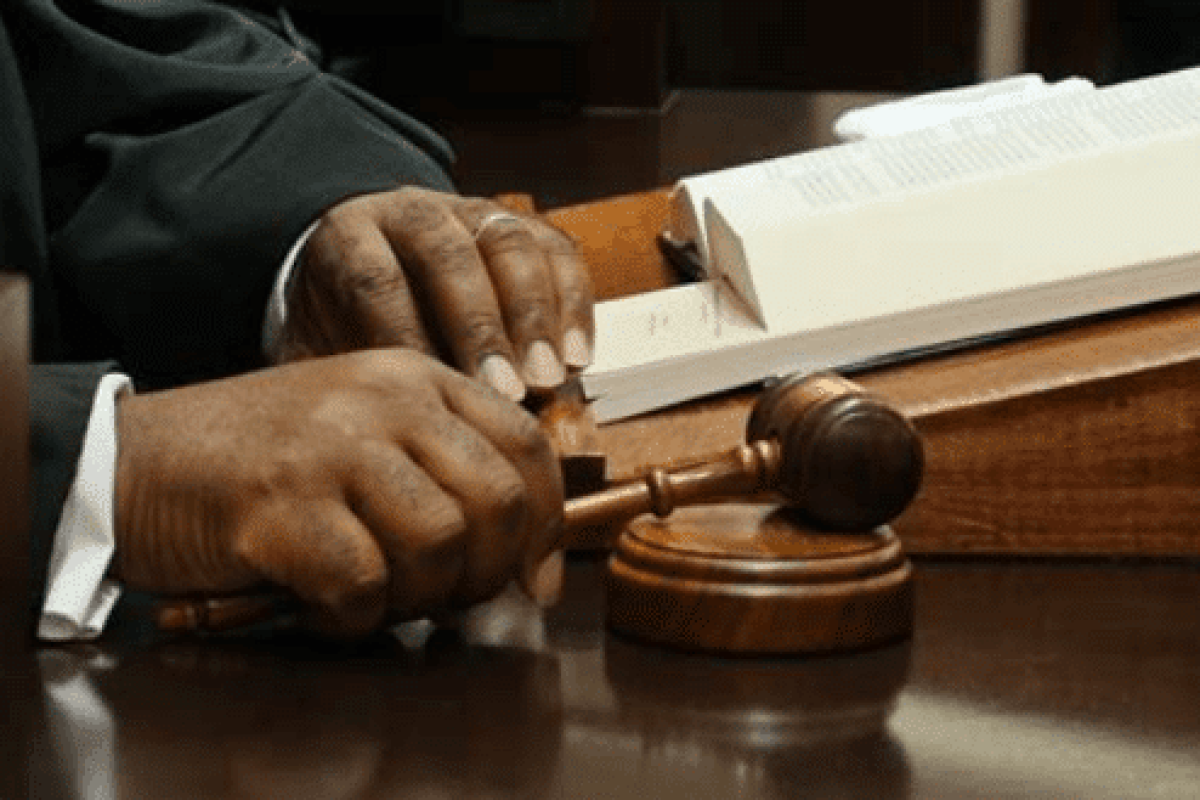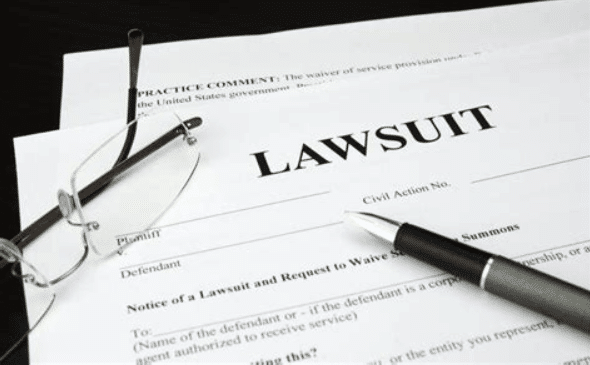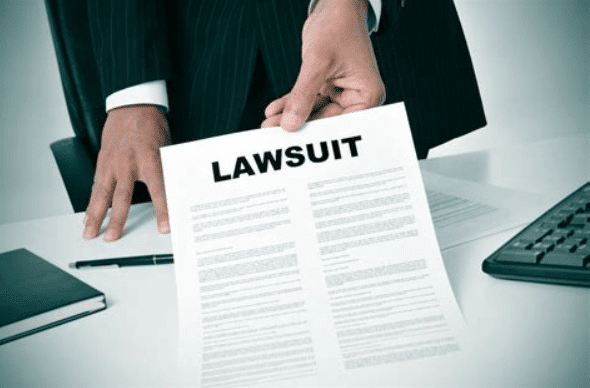To check the status of your case in West Virginia, you must visit the courthouse where your case is filed or contact the court clerk directly. Currently, there is no free online tool available for searching the status of court cases in West Virginia.
Given the importance of staying informed about your case, especially in debt-related lawsuits where proper service of documents may be lacking, proactively monitoring your case in court records is advisable. Despite the absence of an online database, records of debt collection lawsuits are maintained by the relevant courts. You can access documents and electronic records by reaching out to or visiting the court handling your case.
Understanding the complexity of locating your case, this article aims to provide guidance on navigating the process within West Virginia’s civil court structure. We’ll begin by examining the state’s civil court system.
Understand the civil court structure in West Virginia
In order to find your case information online or in person, it’s important to understand how the civil courts are structured in West Virginia. When you know what courts have jurisdiction over certain types of cases, it will be easier for you to narrow down the court in which your case is assigned. There are three levels of civil courts in West Virginia:
- Supreme Court of Appeals
- Circuit Court
- Magistrate Court
Virginia’s judicial system comprises various levels, with the Supreme Court of Appeals serving as the highest judicial authority in the state. Functioning primarily as an appellate court, the Supreme Court of Appeals reconsiders cases that have been appealed from the Circuit Court. In essence, individuals dissatisfied with the outcome of their Circuit Court case can seek recourse through an appeal to the Supreme Court of Appeals.
The Circuit Court, operating as a lower court, predominantly adjudicates civil cases involving sums of $7,500 or more. Additionally, it hears cases that have been appealed from the Magistrate Court. Notably, high-value debt lawsuits often commence at the Circuit Court level.
Conversely, the Magistrate Court, also functioning as a lower court, holds jurisdiction over small claims cases involving $5,000 or less, as well as regular civil cases valued at $7,500 or less. It serves as the primary venue for initiating most debt lawsuits.
Furthermore, alongside the state judicial system, West Virginia is also home to two federal courts, each serving distinct geographic regions. These federal courts have jurisdiction over criminal or civil cases that contravene federal law.
Check the status of your court case in West Virginia
Since there are no online case search tools in West Virginia, the best way to check your case status is making a visit to yoru courthouse or calling the court clerk. Most clerks are willing to look up your case for you and answer as many questions as they can without giving legal advice.
In order for the court clerk to search your case, you will need to provide some or all of the following information:
- Case Number: Each case is assigned a case number for organizational purposes, and this is the easiest way for you to search for and find your case online. When you receive notification of your lawsuit, the case number should be listed on the court documents.
- Case Type: There are several different case types, but if you’re being sued for a debt you owe, the case type will be considered civil. Other case types include family, criminal, traffic, etc.
- Party Name: This is your first and last name, or the first and last name of the party involved in the case (either the person being sued or the person suing).
- Business Name: If you’re being sued by a company, you can also enter the business name instead.
- Filing Date: Finally, if you know the exact date (or even a date range) of when the case was filed in the court, you can use the date to search for the case.
Usually, the clerk can find a case with just the party names, but it’s helpful to come with as much information as possible to ensure you look up the correct case.
The West Virginia Judiciary Branch website provides all state courts’ addresses and contact information. If you wish to look up court cases in a county, select that county on the map to get the court’s contact information, including address and the court clerk’s phone number.
Request copies of court documents in West Virginia
You may also order copies of West Virginia court records over the phone or by mail if you do not wish to appear in person at the courthouse. Contact the clerk of the court and give them the case number or name of your case. Your clerk’s office will then let you know the cost of your case search request and provide payment instructions.
If you wish to get West Virginia court records by mail, write to the county and courthouse. Courthouses may have different forms for requests, but a request should provide the following information at a minimum:
- Names of the requester
- Addresses of the requestor
- Case numbers, names, or any other information that will make it easy to retrieve
- Daytime contact information for requestor
- A copy of the payment proof. Before ordering a court record, verify the cost with the clerk’s office
Finding court records in West Virginia
Traditional government sources and organizations such as the West Virginia State Law depository Library provide access to public records for citizens in West Virginia.
They maintain all information regarding trials, including the court’s decision and all documents filed from the beginning to the end.
Is West Virginia court case information available to the public?
Yes, West Virginia court records are public under West Virginia’s Freedom of Information Act (FOIA) as long as they are not exempt from disclosure. When you request West Virginia public records, the court clerk must provide them within five business days of your request, and you don’t need to specify your reasons.
How can I find my West Virginia court case number?
A case number distinguishes one lawsuit from another and is assigned by a court staff member when the suit is filed. Cases identify the filing year, the type, and the filing staff, besides sometimes identifying the court.
The courthouse clerk where your lawsuit was filed may provide you with your case number. This information must be accurate to facilitate retrieval. Most of the time, finding case numbers only requires knowing the party’s full name and a few details about the case. Appear in person to get case numbers after locating the court.
ZumaZip can help you avoid debt collection lawsuits
If confronted with a debt lawsuit in West Virginia, several options are available. In such circumstances, ZumaZip.com stands ready to assist in generating a prompt response within minutes. The pivotal initial step toward prevailing in a debt collection lawsuit in West Virginia entails submitting a written Answer. Self-represented litigants in the state are afforded a window of 20 days to respond before risking default judgment. It’s critical to note that defaulting may result in adverse consequences, including potential wage garnishment or the imposition of property liens by the debt collector.
What is ZumaZip?
ZumaZip is a convenient solution designed to streamline your response to a debt collection lawsuit. Here’s a breakdown of what you can expect when you use ZumaZip:
Firstly, you’ll access our user-friendly web application, which guides you through the process step by step. You’ll be prompted to answer a series of questions related to your specific situation. Once you’ve completed the questionnaire, you have the option to either print out the finalized forms and mail them to the appropriate courts yourself, or you can opt to utilize ZumaZip’s services to file them on your behalf. Additionally, if you choose this option, an attorney will review your document for added peace of mind.
If you’re seeking guidance on how to effectively respond to a debt collection lawsuit, ZumaZip can provide the assistance you need. Feel free to explore our FAQs for more information on what ZumaZip has to offer.
What if I haven’t been sued yet?
If you’ve only received a collections notice, but not a lawsuit, the best way to respond is with a Debt Validation Letter. When a debt collector contacts you in any way, whether it’s by phone or mail, you can respond by formally requesting a debt validation with a Debt Validation Letter . This letter notifies the collector that you dispute the debt and forces them to provide proof you owe the debt. They can’t call you or continue collecting until they provide validation of the debt. This flowchart shows how you can use a Debt Validation Letter to win.
Get started with a Debt Validation Letter here.
How to Answer a Summons for debt collection in all 50 states
Here’s a list of guides on how to respond to a debt collection lawsuit in each state:
- Alabama
- Alaska
- Arizona
- Arkansas
- California
- Colorado
- Connecticut
- Delaware
- Florida
- Georgia
- Hawaii
- Idaho
- Illinois
- Indiana
- Iowa
- Kansas
- Kentucky
- Louisiana
- Maine
- Maryland
- Massachusetts
- Michigan
- Minnesota
- Mississippi
- Missouri
- Montana
- Nebraska
- Nevada
- New Hampshire
- New Jersey
- New Mexico
- New York
- North Carolina
- North Dakota
- Ohio
- Oklahoma
- Oregon
- Pennsylvania
- Rhode Island
- South Carolina
- South Dakota
- Tennessee
- Texas
- Utah
- Vermont; Vermont (Small Claims court)
- Virginia
- Washington
- West Virginia
- Wisconsin
- Wyoming
Guides on how to beat every debt collector
Hey there! Facing off against a debt collector can feel like a daunting challenge, but fear not! We’re here to help you navigate through it all with our handy guides designed to assist you in beating every debt collector you encounter. Whether you’re facing a new lawsuit or dealing with a persistent collector, we’ve got your back. Stay positive, stay informed, and let’s tackle this together!
- Absolute Resolutions Investments LLC
- Accredited Collection Services
- Alliance One
- Amcol Clmbia
- American Recovery Service
- Asset Acceptance LLC
- Asset Recovery Solutions
- Associated Credit Services
- Autovest LLC
- Cach LLC
- Cavalry SPV I LLC
- Cerastes LLC
- Colinfobur
- Covington Credit
- Crown Asset Management
- CTC Debt Collector
- Cypress Financial Recoveries
- Delanor Kemper & Associates
- Eagle Loan of Ohio
- Educap
- Estate Information Services
- FIA Card Services
- Forster & Garbus
- Freshview Solutions
- Fulton Friedman & Gullace LLP
- Harvest Credit Management
- Howard Lee Schiff
- Hudson & Keyse LLC
- Integras Capital Recovery LLC
- Javitch Block
- Jefferson Capital Systems LLC
- LVNV Funding
- Mannbracken
- Mariner Finance
- Medicredit
- Michael J Adams PC
- Michael J Scott
- Midland Funding LLC
- Mullooly, Jeffrey, Rooney & Flynn
- Mountain Land Collections
- MRS Associates
- National Collegiate Trust
- Nationstar Foreclosure
- Northstar Capital Acquisition
- NCEP LLC
- NRC Collection Agency
- OneMain Financial
- Palisades Collection LLC
- Pallida LLC
- Paragon Revenue Group
- Pinnacle Collections Agency
- PMAB LLC
- Portfolio Recovery Associates
- Provest Law
- PYOD LLC
- Reunion Student Loan Finance Corporation
- Revenue Group
- Regents and Associates
- RSIEH
- Salander Enterprises LLC
- Second Round Sub LLC
- Security Credit Services
- Sherman Financial Group
- Suttell and Hammer
- T-Mobile
- Transworld Systems
- Tulsa Teachers Credit Union
- UCB Collection
- Velo Law Office
- Velocity Investments
- Waypoint Resource Group
- Weinberg and Associates
- Wolpoff & Abramson
Settle your medical debt
Having a health challenge is stressful, but dealing medical debt on top of it is overwhelming. Here are some resources on how to manage medical debt.
- Am I Responsible for My Spouse’s Medical Debt?
- Do I Need a Lawyer for Medical Bills?
- Do I Need a Lawyer to Fight Medical Bill Debt?
- Does Bankruptcy Clear Medical Debt?
- How Much Do Collection Agencies Pay for Medical Debt?
- How to Find Medical Debt Forgiveness Programs
- Is There a Statute of Limitations on Medical Bills?
- Medical Debt Statute of Limitations by State
- Summoned to Court for Medical Bills — What Do I Do?
- Summoned to Court for Medical Bills? What to Do Next
Stop calls from Debt Collectors
Do you keep getting calls from an unknown number, only to realize that it’s a debt collector on the other line? If you’ve been called by any of the following numbers, chances are you have collectors coming after you, and we’ll tell you how to stop them.
- 800-390-7584
- 800-289-8004
- 800-955-6600
- 877-366-0169
- 877-591-0747
- 800-278-2420
- 800-604-0064
- 800-846-6406
- 877-317-0948
- 888-899-4332
- 888-912-7925
- 202-367-9070
- 502-267-7522
Other wage garnishment resources
- Bank Account Garnishment and Liens in Texas
- Can I Stop Wage Garnishment?
- Can My Wife’s Bank Account Be Garnished for My Debt?
- Can Payday Loans Garnish Your Wages?
- Can pensions be garnished?
- Can Private Disability Payments Be Garnished?
- Can Social Security Disability Be Garnished?
- Can They Garnish Your Wages for Credit Card Debt?
- Can You Stop a Garnishment Once It Starts?
- Guide to Garnishment Limits by State
- How Can I Stop Wage Garnishments Immediately?
- How Long Before a Creditor Can Garnish Wages?
- How Long Does It Take to Get Garnished Wages Back?
- How to Fight a Wage Garnishment
- How to Prevent Wage Garnishment
- How to Stop a Garnishment
- How to Stop Social Security Wage Garnishment
- How to Stop Wage Garnishment — Everything You Need to Know
- New York Garnishment Laws – Overview
- Ohio Garnishment Laws — What They Say
- Wage Garnishment Lawyer
- What Is Wage Garnishment?
Guides on Arbitration
If the thought of going to court stresses you out, you’re not alone. Many Americans who are sued for credit card debt utilize a Motion to Compel Arbitration to push their case out of court and into arbitration.
Below are some resources on how to use an arbitration clause to your advantage and win a debt lawsuit.
- How Arbitration Works
- How to Find an Arbitration Clause in Your Credit Agreement
- How to Make a Motion to Compel Arbitration
- How to Make a Motion to Compel Arbitration in Florida
- How to Make a Motion to Compel Arbitration Without an Attorney
- How Credit Card Arbitration Works
- Motion to Compel Arbitration in California
- Sample Motion to Compel Arbitration
Federal Debt Collection Laws Can Protect You
Knowing your rights makes it easier to stand up for your rights. Below, we’ve compiled all our articles on federal debt collection laws that protect you from unfair practices.
- 15 USC 1692 Explained
- Does the Fair Credit Reporting Act Work in Florida?
- FDCPA Violations List
- How to File an FDCPA Complaint Against Your Debt Collector (Ultimate Guide)
- How to Make a Fair Debt Collection Practices Act Demand Letter
- How to Submit a Transunion Dispute
- How to Submit an Equifax Dispute
- How to Submit an Experian Dispute
- What Debt Collectors Cannot Do — FDCPA Explained
- What Does Account Information Disputed by Consumer Meets FCRA Requirements Mean?
- What does “meets FCRA requirements” mean?
- What does FCRA stand for?
- What is the Consumer Credit Protection Act
Resolve Your Debt with Your Creditor
Some creditors, banks, and lenders have an internal collections department. If they come after you for a debt, ZumaZip can still help you respond and resolve the debt. Here’s a list of guides on how to resolve debt with different creditors.
- American Express; American Express – Debt Collection
- Bank of America
- Barclay
- Best Buy Credit Card
- Capital One
- Chase
- Credit One Bank
- Old Navy Credit Card
- PayPal Synchrony Card
- Regional Finance
- Retailers National Bank
- Reunion Student Loan Finance Corporation
- SYNCB/PPEXTR
- Synchrony Bank
- Synchrony Walmart Card
- Target National Bank
- Webbank
- Wells Fargo
- Can I Pay My Original Creditor Instead of a Debt Collection Agency?
- Can I Settle a Debt with the Original Creditor?
Check the Status of Your Court Case
Don’t have time to go to your local courthouse to check the status of your case? We’ve created a guide on how to check the status of your case in every state, complete with online search tools and court directories.
- Alabama Court Case Search—Find Your Lawsuit
- Alaska Court Case Search — Find Your Lawsuit
- Arizona Court Case Search – Find Your Lawsuit
- Arkansas Court Case Search — Find Your Lawsuit
- California Court Case Search- Find Your Lawsuit
- Colorado Court Case Search — Find Your Lawsuit
- Connecticut Case Lookup — Find Your Court Case
- Delaware Court Case Search — Find Your Lawsuit
- Florida Court Case Search — Find Your Lawsuit
- Georgia Court Case Search — Find Your Lawsuit
- Hawaii Court Case Search — Find Your Lawsuit
- Idaho Court Case Search – Find Your Lawsuit
- Illinois Court Case Search — Find Your Lawsuit
- Indiana Court Case Search — Find Your Lawsuit
- Iowa Court Case Search — Find Your Lawsuit
- Kansas Court Case Search — Find Your Lawsuit
- Kentucky Court Case Search — Find Your Lawsuit
- Louisiana Court Case Search — Find Your Lawsuit
- Maine Court Case Search — Find Your Lawsuit
- Maryland Court Case Search — Find Your Lawsuit
- Massachusetts Court Case Search — Find Your Lawsuit
- Michigan Court Case Search — Find Your Lawsuit
- Minnesota Court Case Search — Find Your Lawsuit
- Mississippi Court Case Search — Find Your Lawsuit
- Missouri Court Case Search — Find Your Lawsuit
- Montana Court Case Search — Find Your Lawsuit
- Nebraska Court Case Search — Find Your Lawsuit
- Nevada Court Case Search — Find Your Lawsuit
- New Hampshire Court Case Search — Find Your Lawsuit
- New Jersey Court Case Search—Find Your Lawsuit
- New Mexico Court Case Search – Find Your Lawsuit
- New York Case Search — Find Your Lawsuit
- North Carolina Court Case Search — Find Your Lawsuit
- North Dakota Court Case Search — Find Your Lawsuit
- Ohio Court Case Search — Find Your Lawsuit
- Oklahoma Court Case Search — Find Your Lawsuit
- Oregon Court Case Search — Find Your Lawsuit
- Pennsylvania Court Case Search — Find Your Lawsuit
- Rhode Island Court Case Search — Find Your Lawsuit
- South Carolina Court Case Search — Find Your Lawsuit
- South Dakota Court Case Search — Find Your Lawsuit
- Tennessee Court Case Search — Find Your Lawsuit
- Texas Court Case Search — Find Your Lawsuit
- Utah Court Case Search — Find Your Lawsuit
- Vermont Court Case Search — Find Your Lawsuit
- Virginia Court Case Search — Find Your Lawsuit
- Washington Court Case Search — Find Your Lawsuit
- West Virginia Court Case Search — Find Your Lawsuit
- Wisconsin Court Case Search — Find Your Lawsuit
- Wyoming Court Case Search — Find Your Lawsuit


































